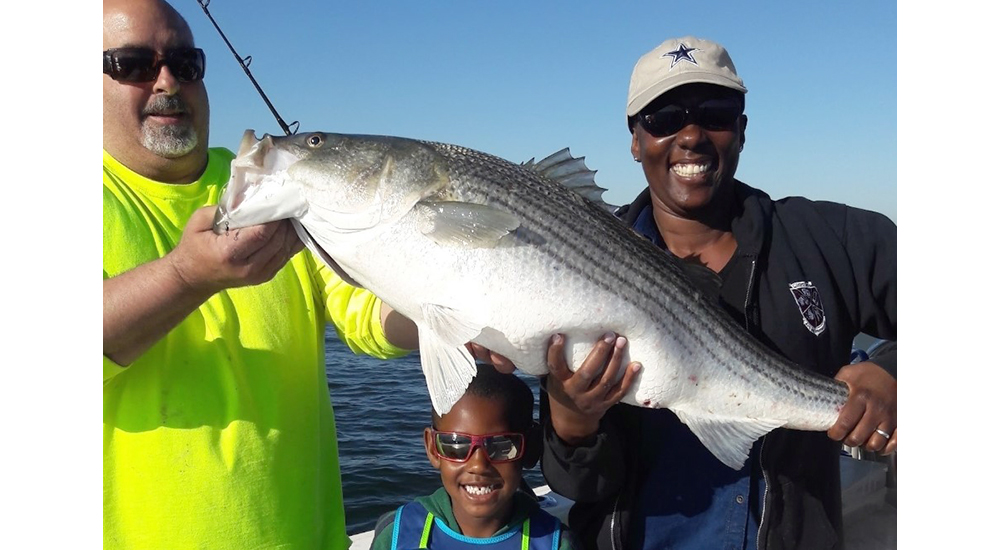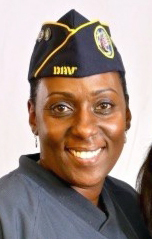Army Veteran and Disabled American Veterans (DAV) volunteer leader Juliet Taylor felt lost during the transition from military to civilian life. “I felt like I needed to jump right back into work,” she said. “It was tough navigating the system.”
But seven years after being medically discharged from Army, Taylor is now a leader in the Veteran community in Connecticut.
Through volunteer work with DAV, Taylor helps Veterans navigate the many VA systems. She also leads or participates in many of DAV’s groups for Veterans, including those for women and minorities, volunteers, and those seeking mental health therapy.
My HealtheVet, VA’s online patient portal, is one of the most important tools she uses for her care and for the Veterans she works with. “You can send a secure message instead of going through calling and trying to get an appointment with your primary care provider to talk to them,” she said. “You can connect with your clinician and get a response in record time.”
From lost Veteran to community leader
After Taylor was discharged from the Army after 14 years, she faced challenges returning to civilian life.
Navigating the VA health care system and accessing her benefits felt foreign to her. And as a single mom and Black woman, Taylor wasn’t sure where she fit with the Veteran community in Connecticut. “I had a host of medical issues, mental health issues, and didn’t know where to turn,” she added.
But while seeking care through VA, Taylor met Al Meadows, who was involved in community service at DAV. The chance meeting sparked her passion for community service and changed the trajectory of her life.
Fishing not just a man thing
Meadows encouraged Taylor to become involved in the DAV community and convinced her to be a driver and volunteer for two local groups: Take a Vet Fishing and Veteran Angler Charters.
Although she initially thought of fishing as a male-dominated activity, she was surprised by how much she enjoyed it. Ultimately, Taylor found that their shared bond as Veterans was more important than their differences in age, background, gender or race. She began to include her children in the volunteer work and introduce them to other Veterans.
“I noticed my children started looking happy,” she said. “My oldest son would say, ‘Mom, are you going there again?’”
Taylor became a permanent driver for DAV, taking Veterans grocery shopping, picking up used clothes and furniture, visiting Veterans in nursing homes, and giving out gift cards. “Giving back gave me a feeling of dignity and self-respect because I was doing something I was not obligated to do,” she said.
Growing her support system and spending time with other Veterans quickly became part of her care. She found that this connection with other Veterans helped with her mental health issues, too.
Benefitted from VA mental health groups
Two women Taylor met through her work, Mary Sperrazza and Darla French, encouraged her to seek VA care for her mental health. She began attending post-traumatic stress disorder, dialectical behavior, and cognitive behavioral therapy (CBT) groups. Through those groups, she learned about VA Mobile apps, such as CBT-i Coach and Insomnia Coach, and started using them to help manage her mental health.
Although Taylor had once felt out of place as a Black woman Veteran, she began to meet fellow minority and women Veterans through DAV. Together, they created groups where every Veteran could find friendship and support.
She organized a project to support women Veterans working night shifts. “We were talking about our housekeepers, nurses, special staff, respiratory technicians, and emergency room technicians. They are are women Veterans who really never get to be highlighted,” Taylor said.
Taylor and a group of women Veterans wanted to encourage these caretakers to take time for themselves. They decided to donate packs of makeup and self-care goods to show their appreciation.
Taylor also worked with members of her group to form the Female Soldiers: Forgotten Heroes program, Connecticut’s first and only community-based transitional home for women Veterans and their young children.
She learned about My HealtheVet when working with these Veterans. Paper communications often don’t reach Veterans who don’t have stable housing, which leads to frequent interruptions in their VA care. “We had Veterans who couldn’t get a hold of their clinician, or didn’t know who their clinician was, or didn’t know who to contact,” she said.
My HealtheVet helped these Veterans reach their VA providers through secure messaging. It also enabled them to find their test results and records electronically. “This sparked a phenomenal change in Veterans connecting with VA,” she said.
Taylor’s hard work and dedication to her Veteran community doesn’t go unnoticed. Next year, she will be the state commander for the DAV Department of Connecticut. This will enable her to serve her community in a new way and grow her support network of Veterans.
But she hasn’t forgotten her roots. Taylor is still involved in the Take a Vet Fishing group where her journey began. She even caught a 38-pound bass. “I’ve gotten a lot of support here in Connecticut.”
Topics in this story
More Stories
The Medical Foster Home program offers Veterans an alternative to nursing homes.
Watch the Under Secretary for Health and a panel of experts discuss VA Health Connect tele-emergency care.
The 2024 National Veteran Suicide Prevention Annual Report provides the foundation for VA’s suicide prevention programs and initiatives.








Great story of helping others .
Great fish , was it a record catch?
I’m having problems getting my disability and need help I am a Vietnam vet
I was a Navy river Boat Engineer and Captain on them, retired in December 1999 with 20 years a started volunteering with volunteer Rescue Squad as A Medic and Fire Fighter till I was in a Rollover-Wrecked lost 35% of Frontal lobes,. 9.5 years later took DMV written test got a Score of 98% right Mcguire put drivers rehab on hold for no reason